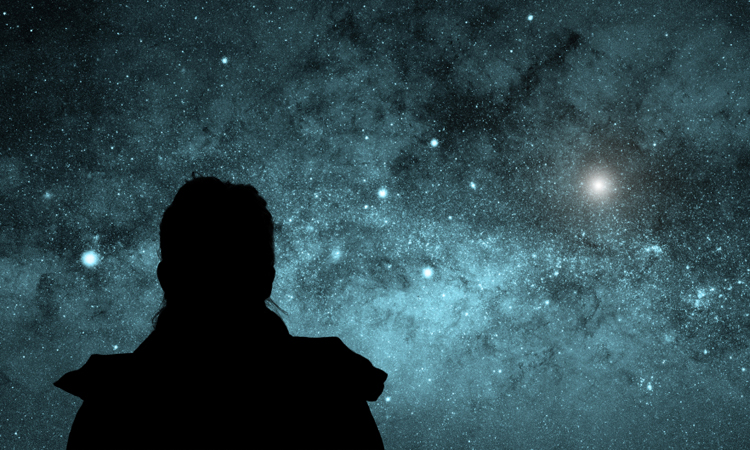
The other night, the electricity went out as I was typing an email on my MacBook Pro. Using the computer screen as a flashlight, I began to look around for candles, but then stopped, closed the computer, and let myself relax and appreciate the dark. The light from the screen had been making me tired, and I felt some eyestrain. I had recently read a review copy of American spiritual writer and former Zen Buddhist monk Clark Strand’s new book, Waking Up to the Dark: Ancient Wisdom for a Sleepless Age, and I found it suddenly relevant to my immediate situation.

In his book, Strand makes a compelling argument that since Thomas Edison’s famous invention, we have grown increasingly addicted to artificial light, but in our love for electricity, we have forgotten something essential that previous generations knew naturally. Before artificial light, he says, people knew a way of resting that is nearly lost to us in this modern age of smart phones and computers. Lost, too, is our relationship to a certain time of night when the mind becomes open to a deeply restful, meditative experience. Strand calls this time the “Hour of God” and he desperately wants humankind to experience it again.
As I sat in the dark, I wondered what such a peaceful time would feel like. I felt stunned and disoriented when the lights suddenly came on again. I had read Strand’s book in one sitting, indeed during the night, and I asked myself: could his argument be right? Are we addicted to electricity, and is that addiction making us exhausted?
Strand talks about how our sleep patterns have changed. Before the invention of electricity, we would wake with the sunrise and fall sleep soon after dusk. Now we go to bed well after dark—and if we wake during the night, we think that something is wrong with us. We call this waking insomnia, spend it worrying about everything from our work to our finances, and seek medical treatment if chamomile tea or warm milk fail us. But, Strand observes, it wasn’t always like this.
In this beautifully written, philosophical, and often poignant book, Strand points to a scientific study done in the mid-1990s by Dr. Thomas Wehr, who wanted to learn what would happen to sleep patterns if you replicated prehistoric conditions and eliminated all artificial light. Wehr found that after a period of adjustment, most people fell into a pattern of sleeping eight hours a night, but in two segments: they would fall asleep soon after sundown for a few hours, then wake for about two hours before sleeping again.
During that two-hour span, subjects described being neither totally awake nor asleep, but in a “state of consciousness all its own,” a state comparable “to what advanced practitioners experience at the deepest levels of meditation.” Blood tests of the volunteers showed that the hormone prolactin “reached elevated levels shortly after dusk” and remained elevated throughout the night. Prolactin “creates a feeling of security, quiet, and peace”—so it’s no surprise that this hormone is “intimately and biologically tied to the dark.” Strand points out that the two-hour window of wakefulness found in Wehr’s study corresponds to the time in monasteries when monastics wake for early morning prayer. He suggests that there is some connection with divine spirit (however you choose to call the spiritual energy that runs through all things) at this time of night. As our sleep patterns have changed with our increasing use of electric light, most of us sleep right through this spiritual two-hour period.
Throughout his book, Strand argues for changing our lives, not only so we can regain this deep sense of rest, but also so we can stop moving in a direction that is detrimental to our planet. As with all addictions, addiction to artificial light can cause harm; Strand makes a strong case that it is linked to the problems of global warming, overpopulation, and the extinction of other species.
After the lights came back on, I was about to return to my unfinished email—an email which had seemed so urgent earlier—but something now stopped me. It was well after 10 p.m. The streetlights outside were shining brightly into my window, but I could still see a sliver of moon and a few stars in the sky. Were they stars or planets? I fought the impulse to check Wikipedia for the answer. What little I know of the night, I thought to myself, closing the computer once again and reaching for the light switch. If I turn off the artificial lights and fall asleep now, perhaps I will wake in a few hours and experience that peaceful, mystical time that Strand’s wonderful book begs us to rediscover.


